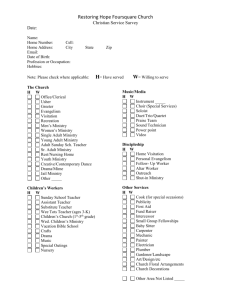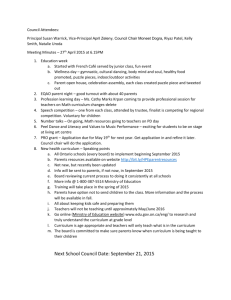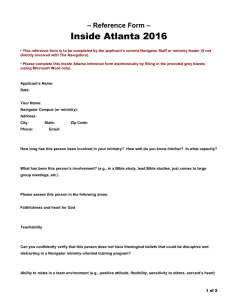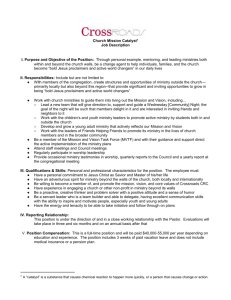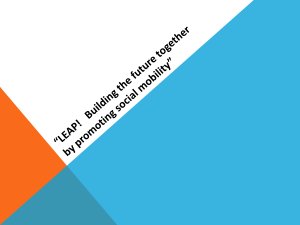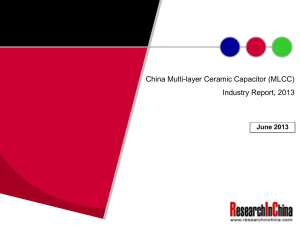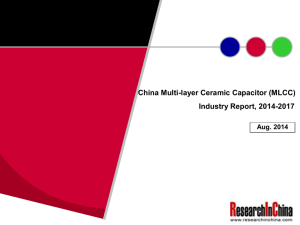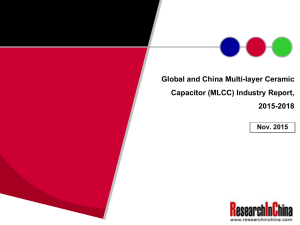Philosophy of Music as Ministry Form (Word)
advertisement
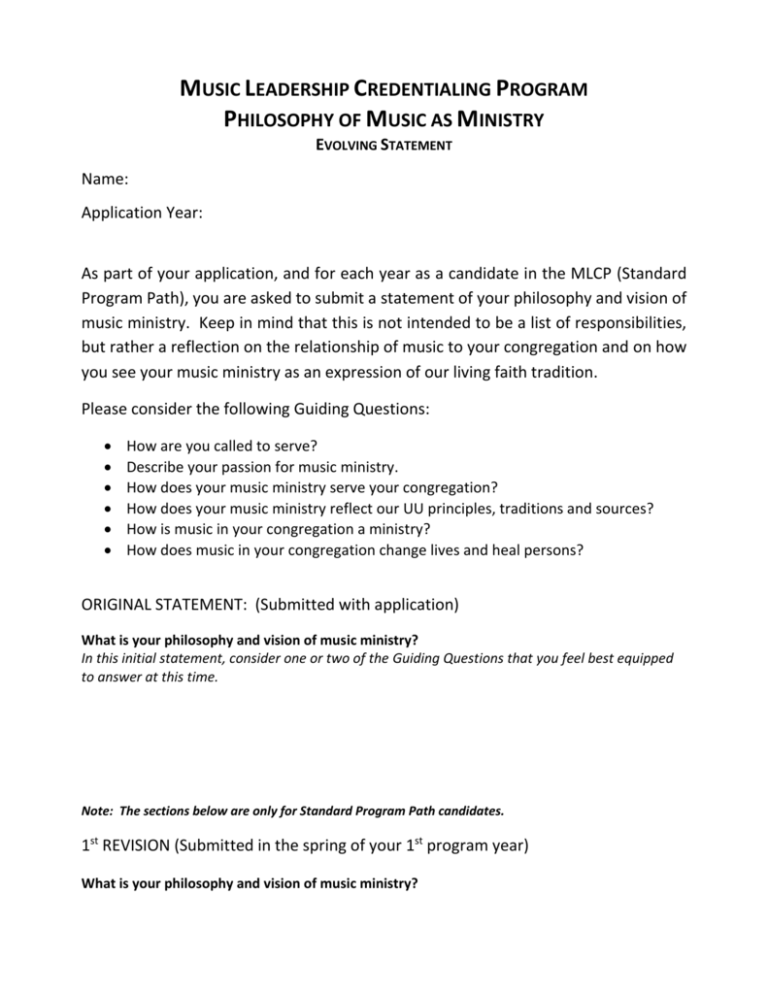
MUSIC LEADERSHIP CREDENTIALING PROGRAM PHILOSOPHY OF MUSIC AS MINISTRY EVOLVING STATEMENT Name: Application Year: As part of your application, and for each year as a candidate in the MLCP (Standard Program Path), you are asked to submit a statement of your philosophy and vision of music ministry. Keep in mind that this is not intended to be a list of responsibilities, but rather a reflection on the relationship of music to your congregation and on how you see your music ministry as an expression of our living faith tradition. Please consider the following Guiding Questions: How are you called to serve? Describe your passion for music ministry. How does your music ministry serve your congregation? How does your music ministry reflect our UU principles, traditions and sources? How is music in your congregation a ministry? How does music in your congregation change lives and heal persons? ORIGINAL STATEMENT: (Submitted with application) What is your philosophy and vision of music ministry? In this initial statement, consider one or two of the Guiding Questions that you feel best equipped to answer at this time. Note: The sections below are only for Standard Program Path candidates. 1st REVISION (Submitted in the spring of your 1st program year) What is your philosophy and vision of music ministry? Expand on your Original Statement by reflecting on the MLCC’s feedback, deepening your responses, and considering additional Guiding Questions (above). 2nd REVISION (Submitted in the spring of your 2nd program year) What is your philosophy and vision of music ministry? Expand on your 1st Revision by reflecting on the MLCC’s feedback, deepening your responses, and considering all of the Guiding Questions (above). FINAL STATEMENT (Submitted in the spring of your 3rd program year) What is your philosophy and vision of music ministry? Distill your reflections from all three prior versions of your Philosophy Statement into a briefer statement that can serve as a touchstone or compass for your day-to-day work as a music leader. (This practice of distilling in-depth reflections from time to time can be useful for your ongoing professional development.) Be sure to look at feedback from the MLCC on your most recent version.


